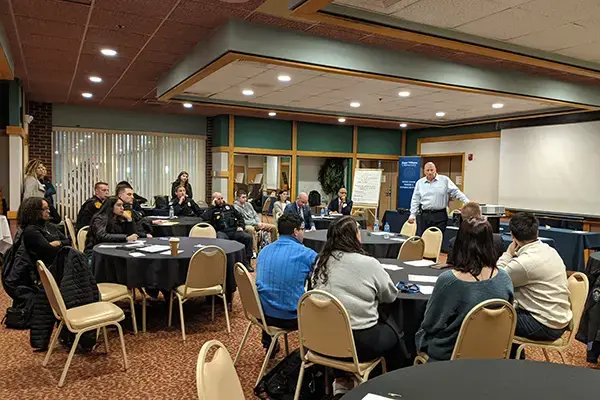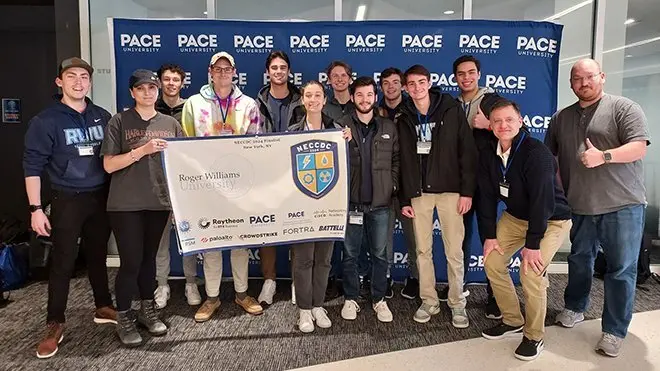About the Criminal Justice (M.S.) Graduate Program
RWU’s interdisciplinary Criminal Justice program combines courses in policing, corrections and procedure with studies in the social sciences to introduce you to the theory and practice of criminal law and the moral complexity of the criminal justice system.
QUICK LINKS
Criminal Justice Program Facts
Format
Hybrid (Bristol) or Fully Online
Schedule
Hybrid, evening courses
Asynchronous, fully online option
Credits Required
36
Time Commitment
1 to 3.5 years
Cost
2026-2027 Academic Year
$1,176 per credit
Fees
2026-2027 Academic Year
$490 per semester (full-time students)
$165 per semester (part-time students)
$145 per semester (online students)
Ways to Save
Apply By
Fall: March 1 (priority), June 15 (regular), August 1 (final)
Spring: November 1 (priority), December 15 (regular), January 6 (final)
Summer: March 1 (regular), April 1 (final)
Upcoming Events
Criminal Justice Degree Requirements
Application Requirements

Community Researcher
Sean Varano ProfessorSean Varano considers himself a community researcher, and for good reason. He has years of experience developing, implementing and evaluating evidence-based approaches to crime and public health programs in the local community.
Read full storyTuition Discounts for First Responders, Active Duty Military, and Veterans
If you are a first responder (police/fire/EMS), active duty U.S. service member, or a veteran of the U.S. Armed Forces, you qualify for a 20 percent tuition discount on graduate programs in the School of Justices Studies.
Criminal Justice Conference Presentations
Academy of Criminal Justice Sciences
Sean Varano, Roger Williams University; Pamela Kelley, PhD, Stonehill College; Laurie Becker (RWU Class of 2021)
Perceptions and Attitudes of Police Toward Treatment-Focused Approaches to the Opioid Crisis
Paper session
American Psychology-Law Society
Melissa B. Russano, Roger Williams University and Kate A. Houston, Texas A&M International University
Modeling and Understanding Confession Decisions in Interpreter-Facilitated Interrogations
Poster presentation
Melissa B. Russano, Roger Williams University; Atkinson Dominick, University of Idaho; and Christian A. Meissner, Iowa State University
Evaluating a Science-Based Interrogation Training Program Using a Between-Participants Design
Poster presentation
Brett Lowder (RWU B.S. Class of 2020); Melissa B. Russano, Roger Williams University; Christian A. Meissner, Iowa State University; and Dominick Atkinson, University of Idaho
Disparate Effects of Accusatorial Techniques During Real-World Interrogations
Poster presentation




